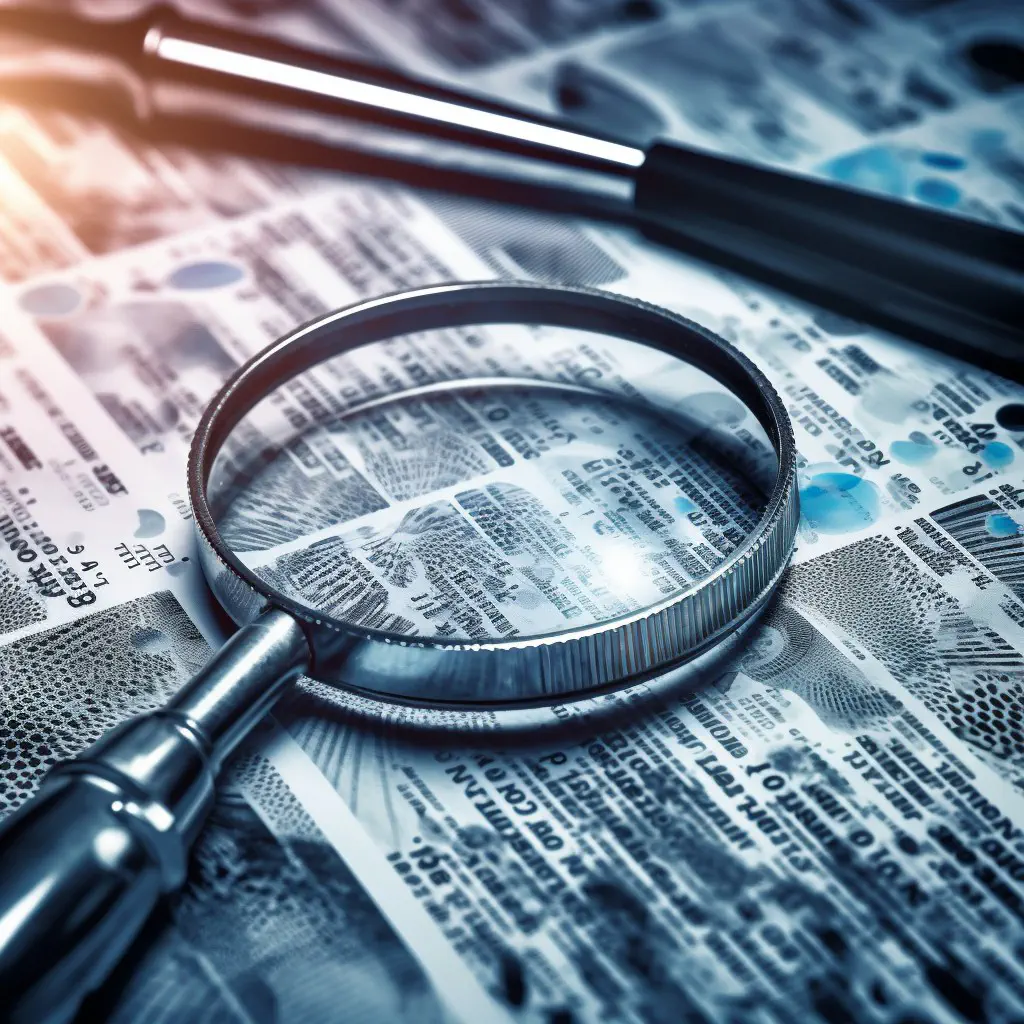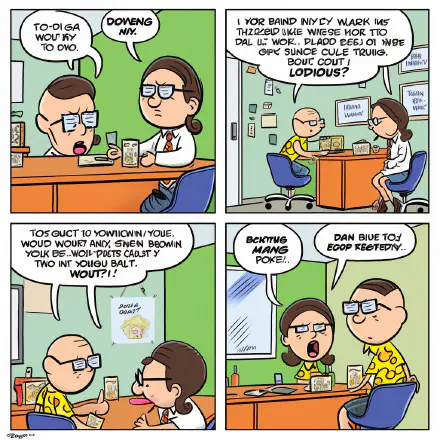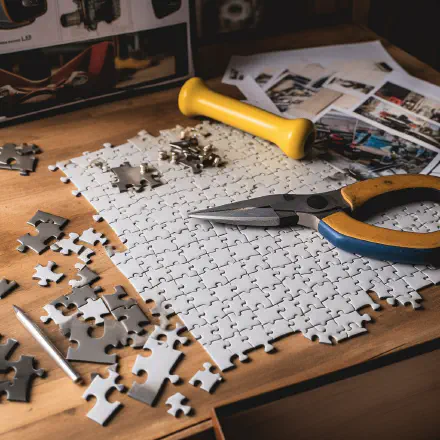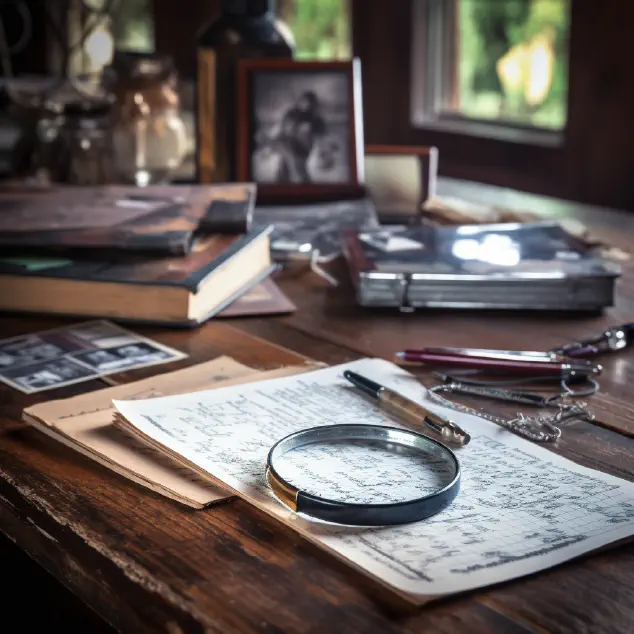
Description
In this blog post, you’ll find 7 practical strategies that can help you improve your forensic thinking skills. Forensic thinking is a vital aspect of forensic science and involves the systematic analysis of evidence, data, and information to develop accurate conclusions. By applying the strategies outlined in this post, you can sharpen your investigative expertise and enhance your skills as a forensic analyst.
The post covers critical aspects of forensic thinking, such as developing critical thinking skills, using logic and reasoning, and asking the right questions. It also highlights the importance of understanding the scientific method and being systematic in your approach to forensic analysis. The post provides practical advice on how to consult with experts in the field and continuously improve your skills.
Whether you’re a seasoned forensic analyst or new to the field, these strategies will help you develop essential forensic thinking skills. By applying them to your work, you’ll be able to make informed decisions and reach accurate conclusions that can be critical in legal and criminal justice settings. The post’s practical and actionable advice will help you develop a deeper understanding of forensic analysis and become a better analyst.
Table of Contents
-
Understand the scientific method
- Formulating hypotheses
- Designing experiments
- Collecting data to test hypotheses
-
Develop critical thinking skills
- Evaluating evidence objectively
- Identifying patterns
- Drawing logical conclusions
-
Ask the right questions
- Uncovering new information
- Challenging assumptions
- Exploring alternative explanations
-
Use logic and reasoning
- Eliminating irrelevant information
- Identifying key facts
- Applying a systematic and structured approach
-
Be systematic in your approach
- Breaking down complex problems
- Following a step-by-step process
- Identifying errors or inconsistencies
-
Consult with experts
- Seeking valuable insights, advice, and guidance
- Gaining new perspectives
- Challenging assumptions
-
Continuously improve your skills
- Staying up-to-date on the latest trends and techniques
- Attending conferences, training sessions, and workshops
- Developing new skills and improving existing ones
Understand the Scientific Method
The scientific method provides a structured approach to problem-solving that involves formulating hypotheses, designing experiments, collecting data, and analyzing results. By understanding the scientific method, forensic investigators can apply it to their analysis and develop more accurate conclusions.
-
Formulate Hypotheses: Start by developing a testable hypothesis that explains the observed evidence. A well-formulated hypothesis should be specific, measurable, and falsifiable.
-
Design Experiments: Once you have a hypothesis, design experiments to test it. Develop a procedure that will produce data to either support or refute your hypothesis.
-
Collect Data: Collect data through observations, surveys, experiments or any other relevant means. Make sure that the data you collect is reliable, valid, and objective.
-
Analyze Results: Finally, analyze and interpret the data you have collected to determine if it supports or refutes your hypothesis. Use statistical analysis techniques to test your hypothesis rigorously.
By following the scientific method, forensic investigators can ensure that their analysis is objective, rigorous, and based on empirical evidence.
Develop Critical Thinking Skills
To enhance your forensic thinking skills, it’s crucial to develop your critical thinking abilities. Here are some ways you can do it:
Evaluate Evidence Objectively
To become a critical thinker, you need to learn to separate your biases from evidence and analyze it objectively. Evaluate evidence based on its relevance, reliability, and consistency. Don’t make assumptions or jump to conclusions without reasoning or evidence.
Identify Patterns and Connections
Developing the ability to discern patterns and connect seemingly disparate pieces of evidence is a vital aspect of forensic thinking. This skill can help you reveal the underlying meaning of the evidence, which may not be immediately apparent.
Draw Logical Conclusions
Drawing inferences and logical conclusions from evidence is another critical thinking skill that forensic analysts must possess. Use your critical thinking skills to identify relationships between data points, fill gaps in the information, and deduce the most likely scenarios.
Challenge Assumptions
Critical thinking involves questioning, testing, and re-evaluating assumptions. Be open to different perspectives, and don’t assume that an explanation is true without examining the evidence. Always ask questions to clarify and confirm assumptions.
Analyze Arguments
It is essential to evaluate and critique arguments based on their validity, soundness, and coherence. Understand the premises and conclusion of an argument, identify the supporting evidence, and evaluate whether the conclusion logically follows from the premises.
“Critical thinking is the intellectually disciplined process of actively and skillfully conceptualizing, applying, analyzing, synthesizing, and/or evaluating information gathered from, or generated by, observation, experience, reflection, reasoning, or communication, as a guide to belief and action.” ― Foundation for Critical Thinking
By developing your critical thinking skills, you can improve your forensic thinking abilities and become a more effective investigator. Don’t forget to practice and apply these skills regularly to reinforce your cognitive abilities.
Ask the Right Questions
Asking the right questions is crucial to effective forensic analysis. Here are some tips for formulating effective questions:
Ask Open-Ended Questions
Open-ended questions encourage the person you are interviewing to elaborate on their responses and offer additional information. Examples of open-ended questions include:
- Can you describe what happened?
- How did you feel at the time?
- What did you see/hear/smell?
Avoid Leading Questions
Leading questions are designed to elicit a particular response from the person being interviewed. They can be biased and may unintentionally influence the witness’s recollection of events. Examples of leading questions include:
- Did you see the suspect carrying a gun?
- Was the victim provoking the attacker?
Ask Clarifying Questions
Clarifying questions are used to help you better understand the evidence or information that has been presented. Examples of clarifying questions include:
- Can you explain what you meant by that statement?
- Can you provide more detail about what you saw?
Challenge Assumptions
Don’t be afraid to challenge assumptions or explore alternative explanations. By questioning assumptions, you can uncover new information or identify errors in the evidence. Some examples of questions that can challenge assumptions include:
- Is there any other explanation for what happened?
- Have we considered all the available evidence?
Asking the right questions is a critical part of effective forensic analysis. By being curious, open-minded, and systematic in your approach, you can gain a deeper understanding of the evidence and develop more accurate conclusions.
Use Logic and Reasoning
When analyzing evidence, it’s essential to use logic and reasoning to draw accurate conclusions. Here are some practical ways to improve your use of logic and reasoning:
Use Inference
Inference is the process of making logical deductions based on the available evidence. When analyzing evidence, you can use inference to identify patterns, draw conclusions, and predict outcomes.
Avoid Logical Fallacies
Logical fallacies are errors in reasoning that can lead to inaccurate conclusions. Examples of logical fallacies include ad hominem attacks, false dichotomies, and circular reasoning. To avoid logical fallacies, it’s essential to evaluate the evidence objectively and follow a logical thought process.
Follow a Step-by-Step Approach
Forensic analysis often involves evaluating complex and intricate evidence. To avoid missing crucial details, it’s essential to follow a step-by-step approach. By breaking down the evidence into smaller, more manageable parts, you can use logical reasoning to evaluate each piece of evidence thoroughly.
Challenge Your Assumptions
When analyzing evidence, it’s easy to fall into the trap of making assumptions based on preconceived notions or biases. To improve your use of logic and reasoning, you must challenge your assumptions and evaluate the evidence objectively. By taking an unbiased approach, you can ensure that you’re drawing accurate conclusions based on the available evidence.
Consider Alternative Explanations
When analyzing evidence, it’s essential to consider alternative explanations. By exploring different possibilities, you can use logical reasoning to eliminate irrelevant information and identify key facts. By being open-minded, you can ensure that you’re taking a comprehensive and objective approach to forensic analysis.
Using logic and reasoning is a crucial part of forensic thinking. By following these practical tips, you can sharpen your ability to analyze evidence and draw accurate conclusions.
Be Systematic in Your Approach
One of the most important aspects of forensic thinking is being systematic in your approach to analyzing evidence. By breaking down complex problems into smaller, more manageable parts, you can ensure that you don’t miss any crucial details. This is especially important when dealing with large or complicated cases that involve multiple pieces of evidence.
Develop a Plan
Before you start analyzing the evidence, it’s important to develop a plan for your investigation. This plan should include a clear outline of the steps you will take to analyze the evidence, as well as a timeline for completing each step. By developing a plan, you can ensure that you stay on track and don’t overlook any crucial details.
Use a Checklist
Checklists are a powerful tool for ensuring that you don’t miss any important details during your investigation. By creating a checklist of the steps you need to take and the information you need to collect, you can ensure that you don’t leave anything out. Checklists can also help you identify errors or inconsistencies in the evidence.
Document Everything
It’s essential to document everything you do during your investigation. This includes information about the evidence you collect, the analysis you perform, and the conclusions you draw. By documenting everything, you can ensure that you have a clear record of your investigation and that you can defend your findings if necessary.
Verify Your Findings
It’s important to verify your findings by cross-checking them with other sources of information. This might include consulting with other investigators, reviewing previous cases, or conducting additional testing. By verifying your findings, you can ensure that your conclusions are accurate and that you haven’t missed any critical details.
Keep an Open Mind
Finally, it’s important to keep an open mind throughout the investigation process. Don’t be afraid to challenge your assumptions, question your findings, and explore alternative explanations. By remaining open to new ideas and perspectives, you can ensure that you don’t overlook any important information and that you arrive at the most accurate conclusions possible.
Consult with Experts
Consulting with experts is a crucial aspect of developing your forensic thinking skills. By seeking out professionals who have experience in your field, you can gain valuable insights and knowledge that you can apply to your analysis. Here are some subtopics to consider when consulting with experts:
Identify the Right Experts
When looking for experts to consult with, it’s essential to identify the right people. Look for individuals who have experience in the specific area you are investigating. Consider consulting with academics, industry professionals, and law enforcement officers to gain a broad range of expertise.
Ask the Right Questions
When consulting with experts, it’s essential to ask the right questions. Prepare a list of questions ahead of time, and make sure you are clear on what you want to know. Be open to the expert’s perspective and ask follow-up questions to gain a deeper understanding of their insights.
Incorporate Expert Insights
Once you have consulted with experts, incorporate their insights into your analysis. Consider the expert’s perspective when developing hypotheses or evaluating evidence. The expert’s insights can help you identify areas of focus and determine the most effective approach to your analysis.
Build Relationships
Building relationships with experts can be beneficial in the long term. Consider attending conferences or networking events to meet other professionals in your field. Developing relationships can provide you with a network of experts to consult with when needed.
Conclusion
Consulting with experts is a valuable tool in developing your forensic thinking skills. By seeking out the right individuals, asking the right questions, incorporating expert insights, and building relationships, you can gain valuable knowledge and expertise that can enhance your analysis.
Continuously Improve Your Skills
Continuous improvement is a fundamental aspect of professional development and lifelong learning. It’s important to seek out opportunities that allow you to continuously improve your forensic thinking skills. Here are a few strategies to help you do that:
Attend Conferences and Workshops
Attending conferences and workshops is an excellent way to stay up-to-date on the latest trends and techniques in your field. These events provide opportunities to learn from experts, network with other professionals, and gain new insights that can help you become a more effective analyst.
Join Professional Associations
Joining professional associations can provide you with access to resources, publications, and networking opportunities. These organizations often offer training programs, webinars, and other educational opportunities that can help you develop your skills and stay current in your field.
Read Industry Publications
Industry publications, such as journals and trade magazines, can provide you with information on new technologies, research findings, and best practices in your field. By reading these publications regularly, you can stay informed about the latest developments and improve your knowledge base.
Seek Feedback
Feedback is an important tool for professional development. Seeking feedback from colleagues, supervisors, and clients can help you identify areas for improvement and build upon your strengths. Incorporate any feedback you receive into your continuous improvement plan.
Set Goals
Setting goals is an effective way to motivate yourself and focus your efforts on specific areas of improvement. Set goals that are specific, measurable, achievable, relevant, and time-bound. Create a plan of action to achieve your goals, and regularly assess your progress.
Embrace Technology
Technology is rapidly changing the way we work. Embracing technology can help you improve your efficiency and effectiveness as an analyst. Explore new software tools, apps, and other technologies that can help you streamline your workflow and improve your analytical capabilities.
Collaborate with Others
Collaborating with other professionals in your field can help you learn new techniques, develop new ideas, and gain valuable insights into different perspectives. Consider forming a study group or networking with colleagues to share knowledge and expertise.
By implementing these strategies, you can continuously improve your forensic thinking skills and stay on the cutting edge of your field. Remember, professional development is an ongoing process, so always be open to learning and growth opportunities.
Conclusion
In conclusion, improving your forensic thinking skills is crucial when it comes to analyzing evidence accurately. By implementing the seven practical strategies mentioned above, you can enhance your critical thinking skills, be more logical and structured in your approach, and challenge assumptions to uncover new information. Additionally, it’s crucial to continuously seek out new knowledge through training, conferences, and workshops to stay up-to-date with the latest trends and techniques in forensic analysis. Ultimately, with these strategies in place, you can become a skilled forensic analyst and deliver reliable, fact-based conclusions that stand up in any court of law. As John Wooden said, “It’s not what you do, but how well you do it.”


